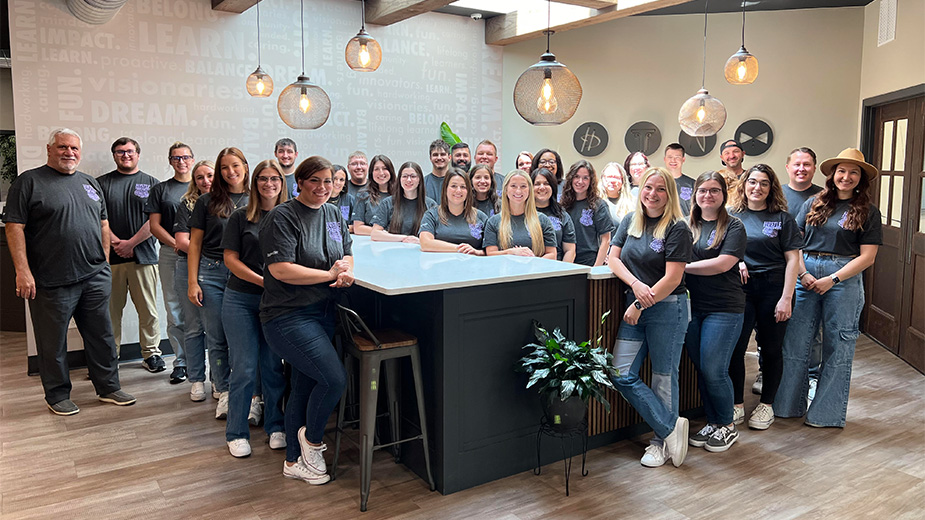Alcoa to Buy RTI Metals in $1.5B Stock Transaction
PITTSBURGH — Alcoa has reached a definitive agreement to purchase RTI International Metals Inc. in a stock-for-stock transaction that has an enterprise value of $1.5 billion. The deal was announced this morning.
RTI is a global supplier of titanium and specialty metal products for the commercial aerospace, defense, energy and medical device markets. It operates titanium melting, forging and hot-rolling mills in Canton and Niles, Ohio, where it formerly maintained its headquarters.
Alcoa, headquartered in New York but founded here, describes itself as a lightweight, high-performance metals leader.
“Alcoa is accelerating its value-add growth engine by acquiring titanium leader RTI,” said Klaus Kleinfeld, Alcoa chairman and CEO in a prepared statement. “We are combining two innovators in materials science and process technology, shifting Alcoa’s transformation into a higher gear. RTI expands our aerospace portfolio market reach and positions us to capture future growth to deliver compelling value for customers, shareholders and employees.”
Dawne Hickton, president and CEO of RTI, said in her prepared statement that RTI is “pleased to have an agreement with Alcoa that delivers immediate value to our shareholders that appropriately reflects the strength of our business. Through this combination of forces, RTI will take its innovative technologies to the next level and deliver even more value-add titanium solutions to meet customer needs. We look forward to continuing to accelerate RTI’s success as a part of the Alcoa team.”
Under the terms of the agreement, Alcoa will acquire all outstanding shares of RTI. RTI shareholders will receive 2.8315 Alcoa shares for each RTI share, representing a value of $41 per RTI share based on Alcoa’s closing price on March 6. The transaction has an enterprise value of $1.5 billion, including $330 million of RTI cash on hand and up to $517 million in RTI’s convertible notes.
Alcoa said the acquisition will offer financial benefits with realized net synergies of about $100 million in 2019, primarily driven by procurement and productivity improvements, leveraging Alcoa’s global shared services and driving profitable growth. Alcoa expects RTI to contribute $1.2 billion in revenues in 2019, up from $794 million generated in 2014, with 65% of revenues supported by contracts over the next five years. RTI is expected to reach profitability of 25% EBITDA margin in 2019, up from 14.5% in 2014.
The transaction is expected to enable Alcoa to capitalize on strong growth in the commercial aerospace sector, the company said. Alcoa projects a compounded annual global aerospace market growth rate of 5% to 6% through 2019 and sees a current nine-year production order book for commercial jets at 2014 delivery rates.
RTI grows Alcoa’s pro forma 2014 annual aerospace revenues by 13%, up from $5 billion to $5.6 billion. RTI is expected to increase Alcoa’s 2014 pro forma aerospace revenues to 37% of value-add sales, up from 35%. Alcoa’s aerospace business is the largest contributor to Alcoa’s value-add businesses.
Eighty percent of RTI’s revenues in 2014 were from the aerospace and defense industries, with the balance mainly split between other markets including energy and medical devices, complementing Alcoa’s growth markets.
What follows is text from the announcement that explains Alcoa’s strategic rationale:
Alcoa said RTI brings proven midstream and downstream capabilities in titanium, the world’s fastest-growing aerospace metal. Spending on titanium aerospace mill products is expected to grow by about 5% annually over the next five years driven by high-growth, next-generation aircraft programs. RTI’s titanium operations span midstream processes such as melting, ingot casting, bloom, billet, plate and sheet production; and downstream extrusions for aerospace, oil and gas applications, high speed machining, and production of integrated subassemblies primarily for aerospace. These capabilities complement Alcoa’s titanium investment casting and forging capabilities, and will enable a value-creating closed titanium scrap loop. RTI will increase the percentage of Alcoa’s non-aluminum downstream revenues to 64 percent of total downstream sales.
RTI will expand Alcoa’s advanced manufacturing and materials technologies. Its high-velocity machining, forming, extruding and parts assembly operations will enable Alcoa to produce some of the largest, most complex aerospace components. Advanced titanium powder metallurgy and processing technology will enable cost-effective production of near net shape aerospace components, as well as medical devices and oil and gas products. RTI will expand Alcoa’s additive manufacturing capabilities, such as 3-D printing, to produce titanium, specialty metals and plastic parts for aerospace, medical and energy applications. RTI also grows Alcoa’s portfolio of cutting-edge materials, including titanium-aluminides, complementing Alcoa’s industry leadership in metallics. Titanium-aluminides are increasingly used to manufacture lightweight, aerodynamic jet engine parts for high-volume, next-generation jet engines.
The transaction, which has been approved by the boards of directors of both companies, remains subject to customary conditions and receipt of regulatory approvals and RTI shareholder approval. Alcoa and RTI expect to obtain all required regulatory clearances and RTI shareholder approval in order to close the transaction in three to six months.
Greenhill & Co. and Morgan Stanley are acting as financial advisors to Alcoa, and Wachtell, Lipton, Rosen & Katz is serving as legal counsel. Barclays is acting as the sole financial advisor to RTI, and Jones Day is serving as legal counsel.
Alcoa, which was founded 125 years ago, employs 59,000 at its facilities in 30 countries.
RTI operates plants in the United States, Canada, Europe, and Asia.
PICTURED: RTI’s titanium plant in Niles, Ohio.
SOURCE: Alcoa
Copyright 2024 The Business Journal, Youngstown, Ohio.


